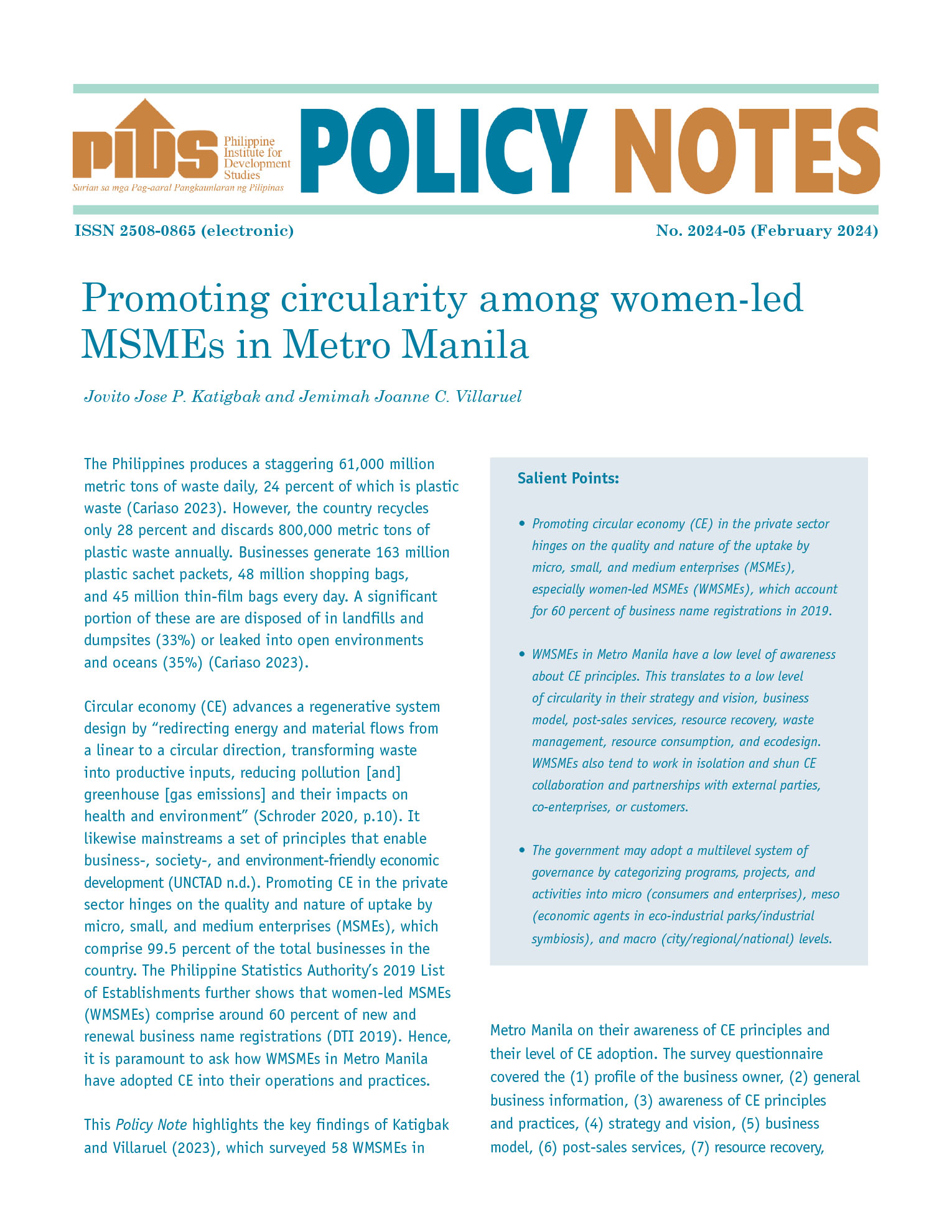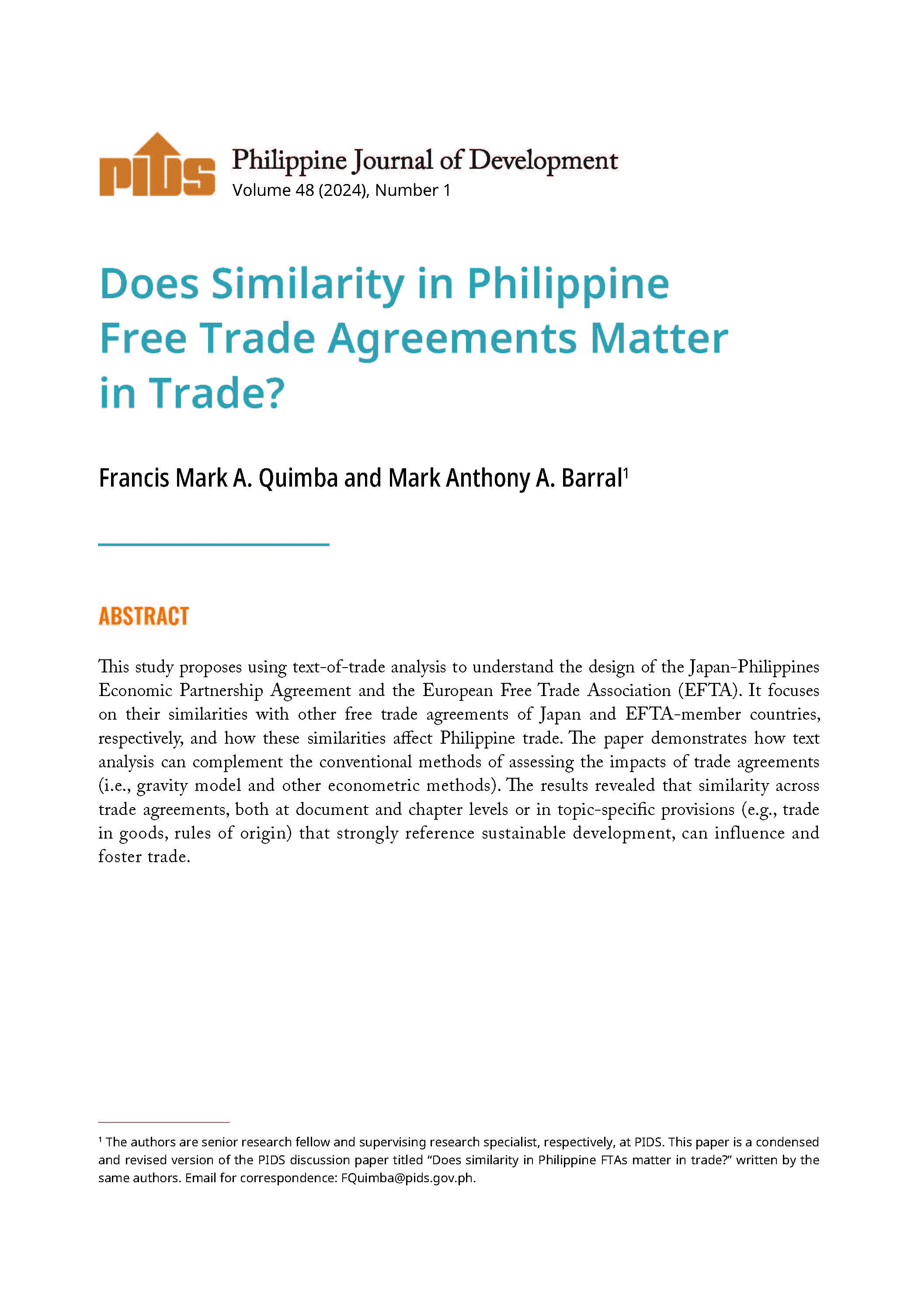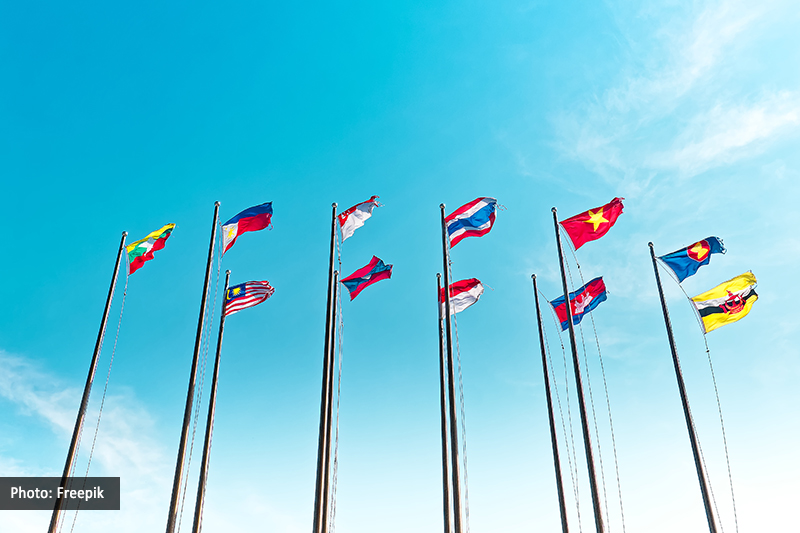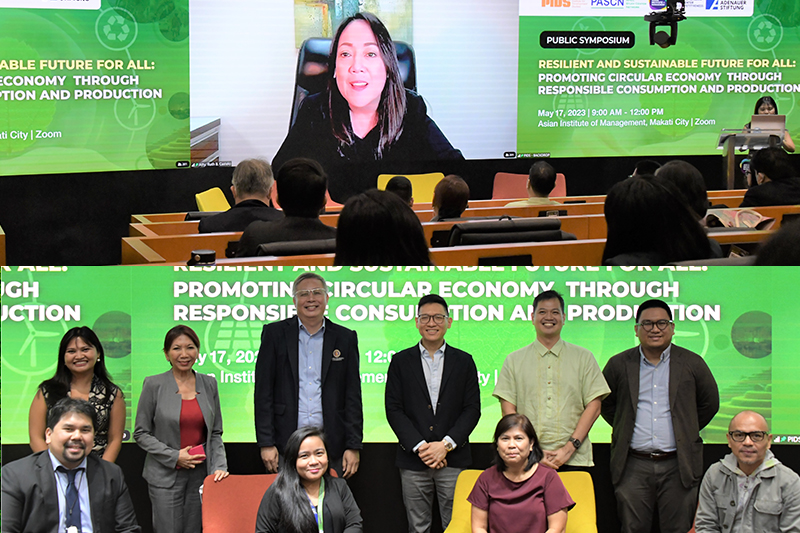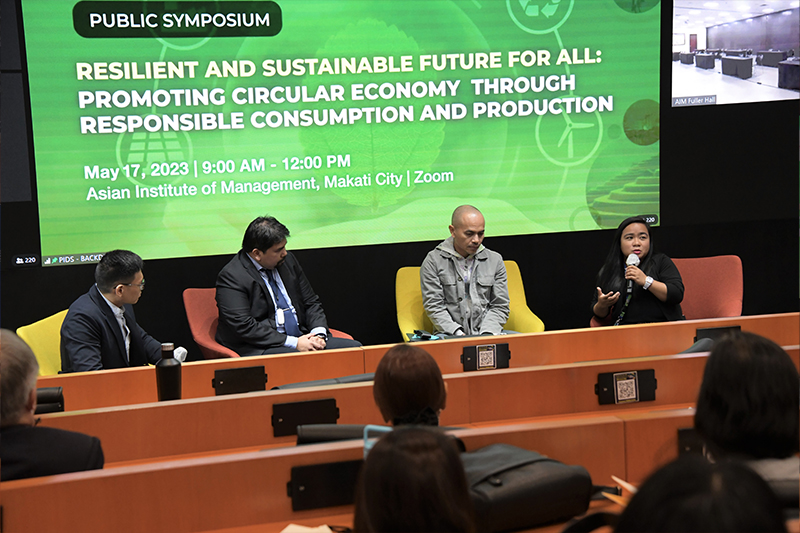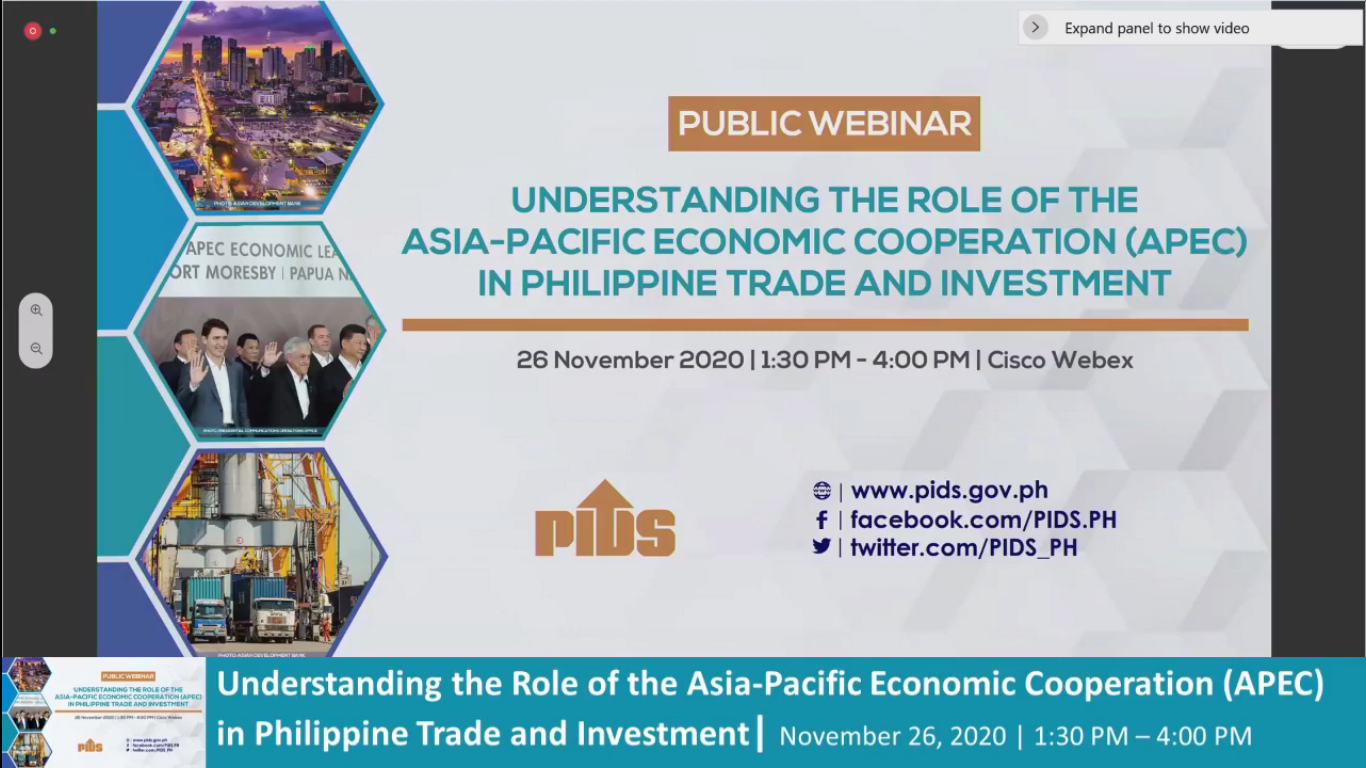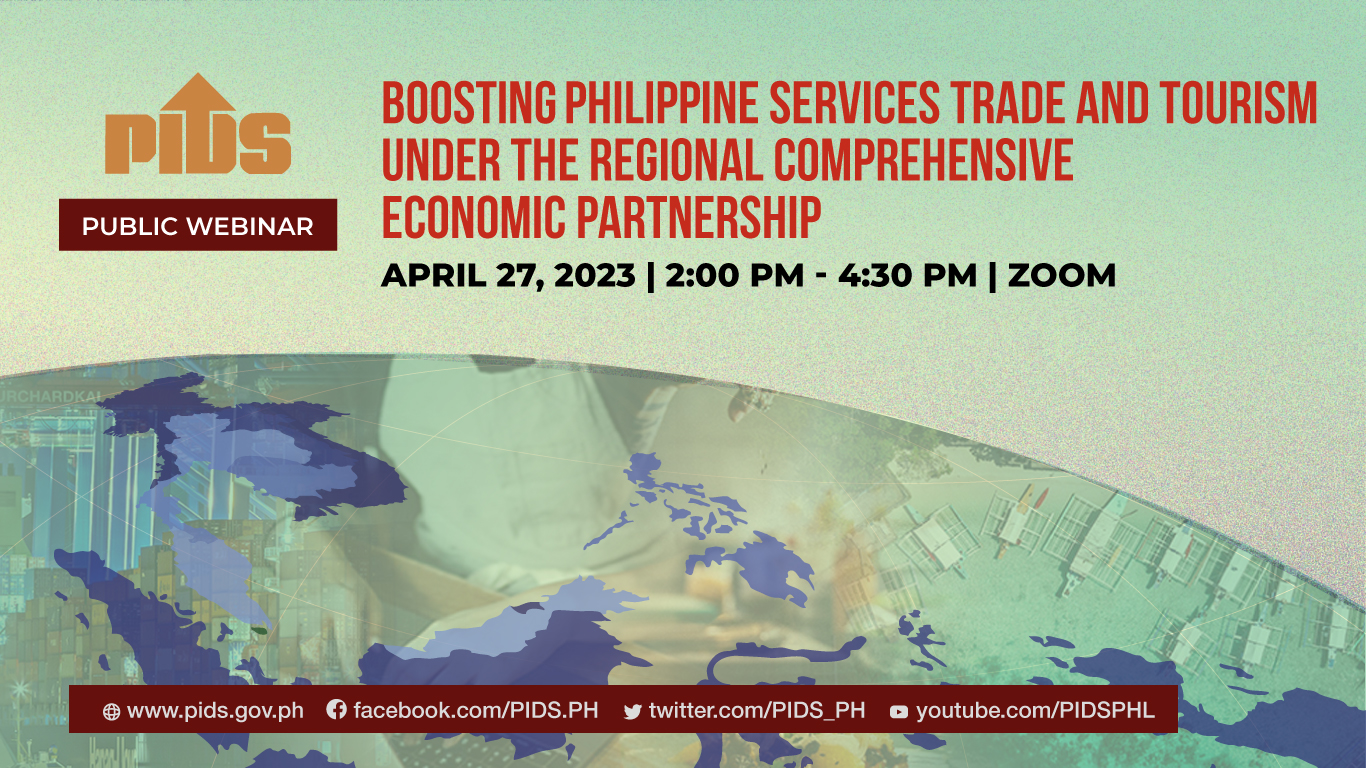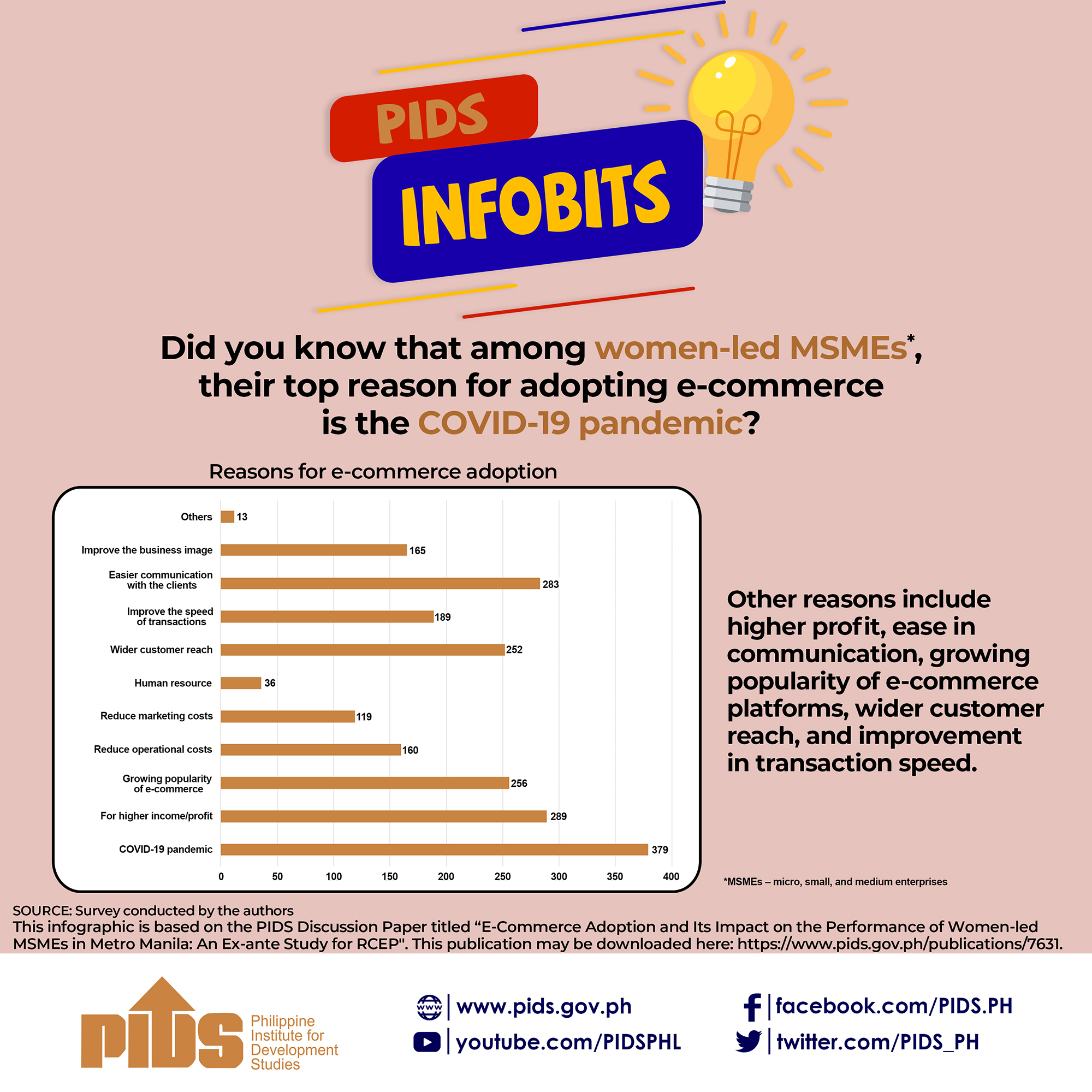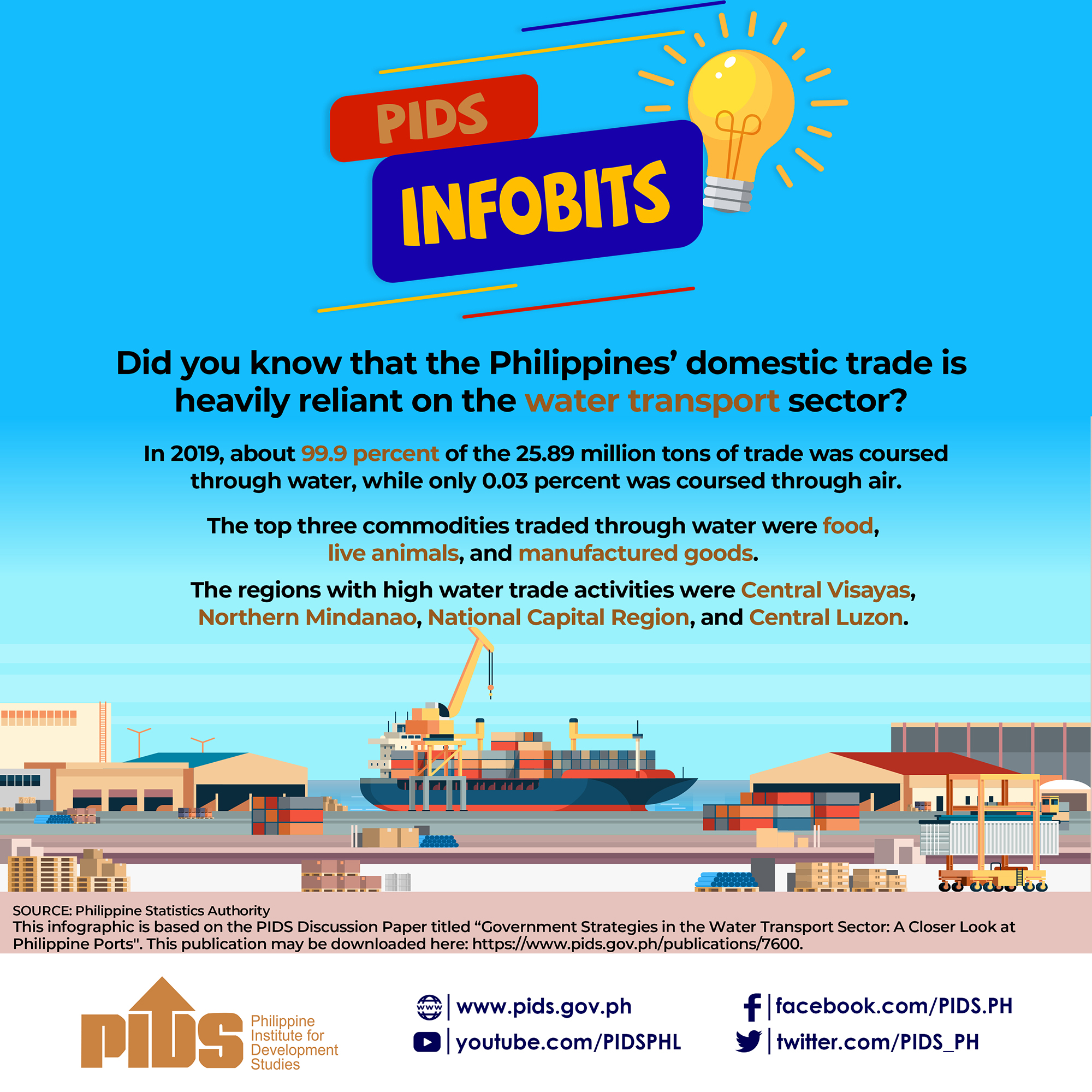The Philippines wants to get a better deal for its agricultural products entering Japan, which is the reason why the two countries have not moved forward with renegotiations for a free trade agreement (FTA) signed more than a decade ago, according to a top official of the Department of Trade and Industry (DTI).
DTI Undersecretary Ceferino Rodolfo told reporters in a recent interview that the Philippines wanted a better market access to Japan under the Philippines-Japan Economic Partnership Agreement (PJEPA) that entered into force in 2008.
Formerly known as JPEPA, the change in acronym to reflect a top billing for the Philippines provides a clue as to where the country stands on the matter. Officials with direct knowledge on the issue has not responded to queries as of press time.
The JPEPA, or PJEPA in this case, is the first ever FTA signed by the Philippines. The agreement covered trade in goods and services, among others.
The deal dictates that both parties would review the agreement starting 2011 and every five years thereafter, unless both countries agreed to change the schedule.
Renegotiation
“The [PJEPA] renegotiation has not moved forward particularly because of Philippines’ insistence on discussing and negotiating for better market access for our agricultural products, including tropical fruits. Currently, an export product of key interest of the Philippines is still levied an 18-percent tariff going to the Japanese market,” Rodolfo said.
While Rodolfo did not identify the particular product, the Department of Agriculture has for years been pushing for a zero tariff for Philippine bananas entering Japan.
Agriculture Secretary William Dar had said that Japan imposed an 18 percent tariff during the winter season and 8 percent during the summer.
“Since it (PJEPA) has already been in force for quite a number of years, we are really prioritizing the renegotiation to keep it up to date with the other FTAs, whether bilateral or regional,” Rodolfo said.
Since the PJEPA, the Philippines has already signed or at least concluded negotiations with other countries, with the most recent being the Regional Comprehensive Economic Partnership agreement with South Korea and 14 others.
Thus, the Philippines now finds itself in a different, albeit strategic market position from where it was years ago.
With that, Rodolfo said they wanted that “PJEPA would maintain its relevance particularly in terms of preferential access to each other’s markets.”
While there is still room for improvement, the deal has so far been beneficial for the Philippines.
State-owned think tank Philippine Institute for Development Studies said in a 2019 study the country “benefited from the expansion of the Philippine market to Japan” after the FTA.
However, the same study said further analysis was needed to understand why some local industries failed to expand their exports to Japan.
“There is a need to identify what prohibits this sector from expanding its exports to Japan,” the study said, while also noting that there were other factors beyond tariff lines that could affect export growth.
PH puts foot down in trade renegotiation with Japan


